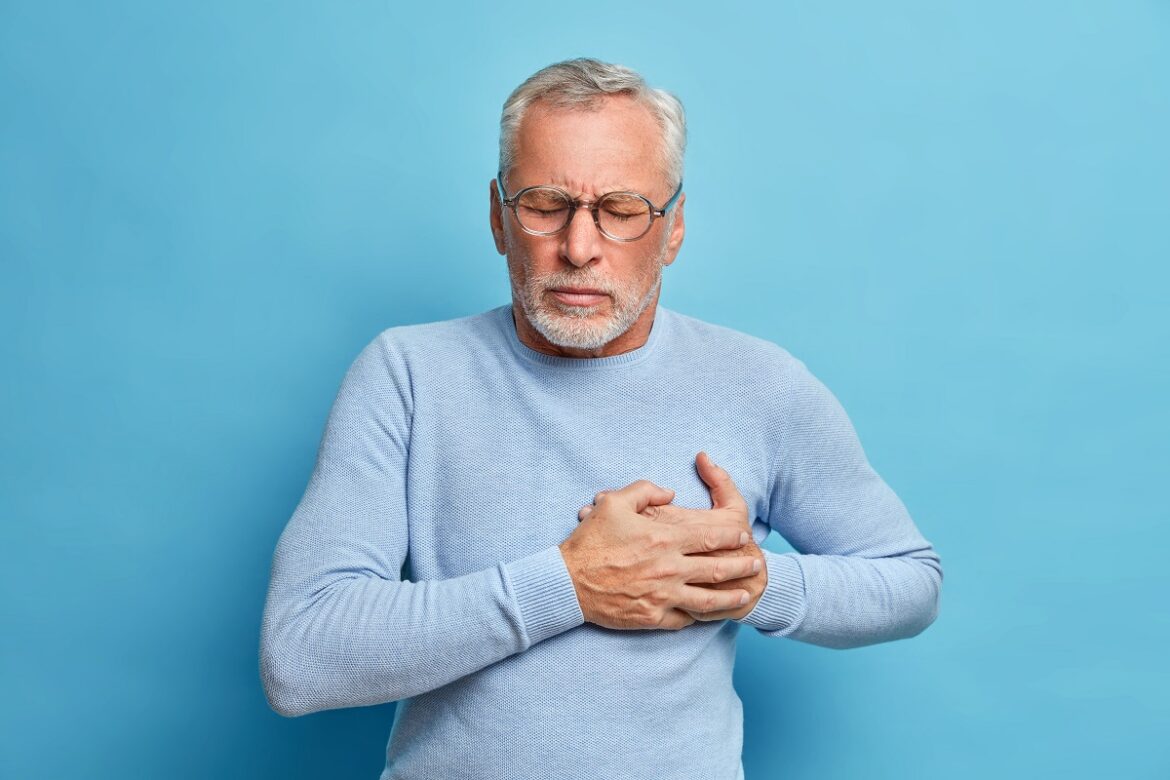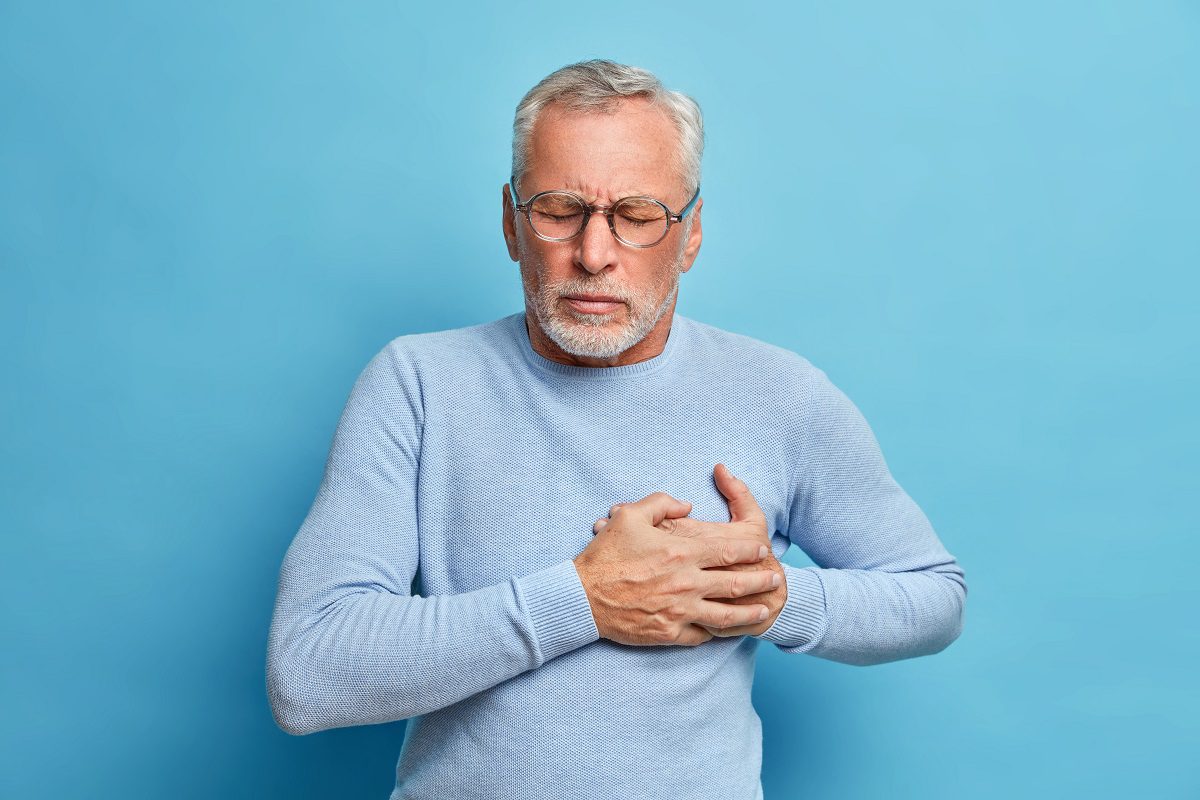-
 play_arrow
play_arrow
BayRadio Listen Live Broadcasting in Spain

A heart attack, medically known as a myocardial infarction, is a potentially life-threatening condition that occurs when blood flow to the heart is blocked, usually due to a build-up of plaque in the coronary arteries.
This blockage prevents oxygen and nutrients from reaching the heart muscle, causing damage or death to the tissues.
Why Does a Heart Attack Occur? Symptoms of a Heart Attack
“The primary cause of myocardial infarctions and strokes is cholesterol plaques in our arteries,” confirms Dr. Silvia Silva from the Cardiology Department at Quirónsalud Torrevieja Hospital.
“If we don’t control these plaques,” the specialist continues, “they grow, soften, and can rupture, causing cholesterol to come into contact with the blood. This triggers a large clot that blocks the arteries and prevents blood from reaching the heart tissues. Therefore, cholesterol is not just a risk factor but one of the main causes of myocardial infarction.”
Another major trigger of heart attacks is lipoprotein A, a type of bad cholesterol that is not typically included in routine blood tests.
“The problem with lipoprotein A is that it does not respond to diet or exercise and must be controlled with medication. Moreover, it increases the likelihood of myocardial infarctions at an early age, as it is a hereditary type of cholesterol.”
Are There Symptoms Days Before a Heart Attack?
There are some symptoms days before a heart attack that can alert us, such as chest discomfort or numbness in the left arm.
Regarding the symptoms of an imminent heart attack, Dr. Silvia Silva highlights:
– Chest pain or discomfort: This is the most common symptom and can manifest as a sensation of pressure, tightness, burning, or pain that can last for minutes or come and go intermittently. It can also feel like a tight band around the chest, similar to severe indigestion.
– Radiating pain: In an acute myocardial infarction, the pain can extend from the chest to the left arm, jaw, back, or neck.
– Shortness of breath: During a massive heart attack, some people feel short of breath, “as if they are out of breath” even without physical exertion.
– Profuse sweating: Another symptom of a heart attack is excessive sweating. We should be alert if it is “cold and clammy” and accompanies other symptoms.
– Nausea, vomiting, indigestion, or dizziness: Some people may feel nauseous, gag, or vomit, or experience “stomach discomfort similar to indigestion” before having a heart attack.
Additionally, Dr. Silvia Silva from Quirónsalud Torrevieja reminds us that heart attack symptoms in men are not the same as those in women or the elderly.
How to React in an Acute Myocardial Infarction: Heart Attack Code and the Importance of Hospital Care
If we believe someone nearby is having a heart attack, we should:
– Call emergency services immediately.
– Have them sit or lie down in a comfortable position where they can rest.
– If we know they have heart attack medication, administer it.
– Try to keep their airway open and clear.
– If they stop breathing or have no pulse, perform CPR (only if we are trained to do so).
– Do not offer food or drinks.
– Keep them warm.
– Provide emotional support, talk to them calmly, and try to convey safety and tranquility.
The medical team’s reaction will depend on the type of heart attack and the organs affected, as having a myocardial infarction is different from having a stroke.
In this context, Dr. Silvia Silva from the Cardiology Department at Quirónsalud Torrevieja talks about the “Heart Attack Code,” an emergency protocol at this hospital to speed up the diagnosis and treatment of acute myocardial infarction (AMI) symptoms.
Can Acute Myocardial Infarction Be Prevented?
Dr. Alejandro Pascual, a specialist from the Cardiology Unit at Quirónsalud Alicante, explains that to prevent heart attacks, it is necessary to:
– Identify and control risk factors.
– Regularly check that cardiovascular health is in good condition.
Cardiovascular risk factors and heart attacks can be modifiable or non-modifiable.
“In the first group, we include lifestyle-related issues such as being overweight, smoking, high cholesterol, sedentary lifestyle, or stress; in the second group, we highlight age (the risk increases after 45 years in men and 55 in women), gender (men are more prone to heart attacks and strokes, although the percentage is similar in women after menopause), family history, or race.”
Regarding tests to monitor cardiovascular health, “they can be requested by the specialist and depend on how we are at any given moment,” although some routine medical checks can alert us to a potential heart attack risk, such as “abnormal heart sounds, high blood pressure, or concerning blood test results.”
Regarding the tests we should request from the cardiologist, the specialist from Quirónsalud Alicante lists:
– Electrocardiogram (ECG or EKG).
– Echocardiogram.
– Stress tests.
– Holter or ambulatory monitoring.
– Laboratory tests.
– Coronary angiography.
Consequences of a Heart Attack and Post-Attack Care
After suffering a cardiac arrest, the heart muscle does not recover 100%, as some cells and tissues may “die” or lose their ability to contract.
Therefore, the risk of having another heart attack is high.
According to Dr. Silvia Silva, after rapid hospital treatment, the patient is “transferred to the UCIC for continuous monitoring and additional treatment. Normally, 48 hours after the heart attack, the patient undergoes a programme designed to improve their recovery with supervised exercise, education on lifestyle changes, and risk factor management.”
Regarding post-attack care, Dr. Alejandro Pascual emphasizes the importance of care, being essential:
– Adopting a healthy diet: It is advised to limit saturated fats, cholesterol, and sodium.
– Engaging in regular exercise: It is recommended to perform at least 150 minutes of moderate aerobic activity or 75 minutes of vigorous aerobic activity weekly.
– Maintaining a healthy weight.
– Quitting smoking.
– Keeping blood pressure within healthy levels (generally below 120/80 mmHg).
– Controlling “bad” cholesterol (generally below 100 mg/dL) with diet, regular exercise, or medication.
– Monitoring blood glucose levels.
– Limiting alcohol consumption.
– Scheduling regular medical check-ups to assess the risk of heart disease in a personalized way.
– Measuring lipoprotein A in routine blood tests.
Written by: Lily
Recent Posts
- Breast lift surgery: everything you need to know
- A Silent Disease: The Early Signs of Parkinson’s You Shouldn’t Ignore
- British buyers still top foreign home purchases in Spain: despite Brexit, UK leads the way in 2024
- Torrevieja unveils the charity race “5K Steps That Matter by Quirónsalud” in aid of AFECÁNCER
- Discover how breast reduction can transform your life: from pain to confidence

Ctra. Cabo La Nao, CC La Nao, Local 6 03730 Javea, Alicante, Spain
Advertise with us
Do you have a business in Spain? Do you provide a service to the expat community in Spain? Would you like your message to reach over 500.000 people on a weekly basis?
BayRadio is a community orientated radio station offering fantastic content to our many listeners and followers across our various platforms. Contact us now and find out what Bay can do for you!
Our business is helping your business grow.
BAY RADIO S.L. © 2024. ALL RIGHTS RESERVED. WEB DESIGN BY MEDIANIC









Post comments (0)